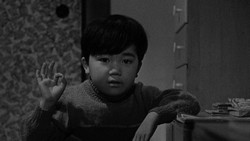In Fire Emblem Fates you play as a prince who can turn into a dragon; also you can marry and have kids with your siblings… oh, right, context. Fire Emblem Fates was one of my most anticipated video game releases of this year; now, after having completed it, it’s currently my biggest disappointment of 2016 (don’t worry Final Fantasy XV, you’ve still got a shot to disappoint). Fire Emblem is a series of tactical turn-based RPGs set in a medieval-fantasy world, and it’s debatably the most popular series in the genre.
The installment Fire Emblem: Awakening added systems for marriages and children into the series. Basically you pair up certain opposite-sex characters by having them fight together, they become friendly over time, and eventually get married and have children; afterwards, through a cheesy time-travel plot twist, these children become units in your army. On the plus side, some of the mechanics associated with this system are interesting—by pairing characters with different classes/stats, you can essentially breed super soldiers. Unfortunately, a lot of effort had to be put into this system to make it work; tons of lines for character interactions had to be written, and complicated balancing for character stats was made essential. I feel that the rest of the game has suffered due to effort being put into these system, and its unnecessary (and occasionally disturbing) expansions.
With their newest title, Fire Emblem Fates, Intelligent Systems (the game’s developers) have doubled-down on the marriage and children systems. While I feel that these systems have played a part in making the series more popular, I also feel that they are starting to take away from the more strategic aspects of the game.
I feel like modern Fire Emblem games give players too much control over their individual units. For example, in earlier Fire Emblem titles you were limited to a certain number of units and could only recruit one wyvern rider at a time. Now, in Fire Emblem Fates, you can do something called “reclassing” and make as many wyvern riders as you want. On the one hand, this sort of character building can be fun, but it results in the game becoming much easier.
As for the plot, I expect a certain amount of quality from Fire Emblem games, something which I’ve felt all the previous titles have provided. I don’t expect them to be masterpieces, but they are narrative-driven, and as such I expect the plot to be at least somewhat engaging. There are three versions of Fire Emblem Fates each with different plots: Conquest, which I review here, Birthright and Revelations. The first version you buy costs $40, and the next two are bought as DLC, and cost $20 each (you can’t buy Revelations first).
Fire Emblem Fates’ premise is that you’re a prince from Hoshido who is kidnapped. When two major factions go to war, you are forced to choose between your adoptive siblings and you blood-related ones. As I bought Conquest, I had to choose my adoptive siblings; had I wanted to choose Hoshido, that decision would have costed $20. If you pay another $20 (we’re at $80 total for those not counting) you can play Revelations, which is a middle-ground path. When all was said and done, it took me a little over 30 hours to play through Conquest. If I had enjoyed the plot, I would have recommended it and the DLC, despite the fact that this would come out to $80. Unfortunately, I found the plot to be both boring and formulaic; this applies not just to the game’s core plot, but to the various subplots and most character development as well.
Then there are a number of features in Fire Emblem Fates that are just plain weird, many of which have an element of romance and titillation to them, as though the developers are trying to expand on the well-received marriage and children systems. For example, you can build a hot springs in your military base, and walk in on characters as they’re bathing. If you walk in on a character of the same sex, you are made to join them; if you walk in on a character of the opposite sex, you apologize and leave. There’s no punishment and no reward for these actions; it’s entirely pointless. I’m more than willing to suspend disbelief in a videogame, particularly an anime-styled one, but this just seems like a convenient excuse to add a cheap thrill to the game. While we’re on the subject of weird, the character your avatar marries basically comes on to you, the player, through the screen. Also did I mention you can marry your in-game siblings?
Honestly, when all’s said and done, I’m having trouble thinking of a good reason to recommend this game. The gameplay wasn’t challenging, the plot was barely tolerable, and, to top it off, the game creeped me out. Character building was fun to a point, but without a challenge to test my characters against, it all ended up feeling rather pointless. I’d personally score Fire Emblem Fates: Conquest 5/10, although I would point out that a number of people enjoyed it far more than I did. Metacritic puts the critic score at 88/100 and user score at 6.7/10, several critics even complained about the difficulty. If you’re looking for a worthwhile turn-based strategy game, I’d definitely recommend any Fire Emblem that came prior to Fire Emblem Fates, even Fire Emblem: Awakening.
IMAGE TAKEN from www.kotaku.com.au




